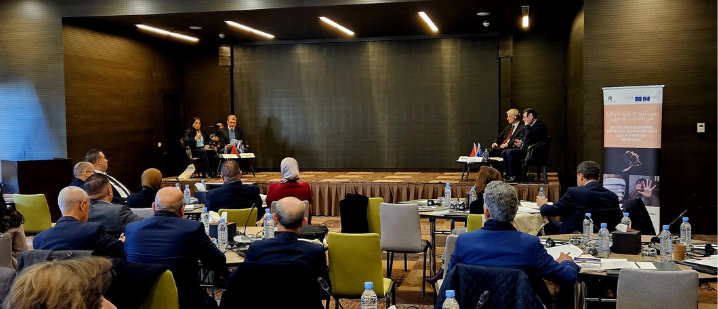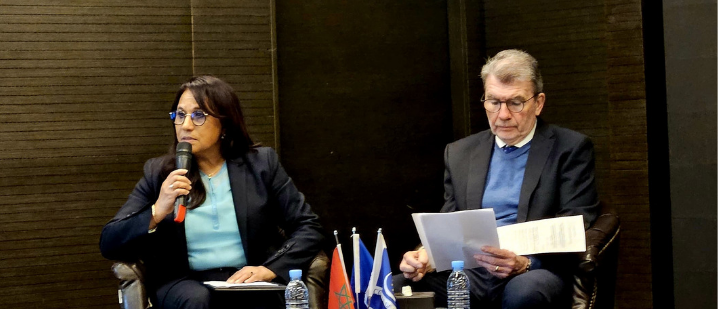CNDH participates in Conference on Summary of Jurisprudence on the Prevention of Torture and Inhumane Treatment

Ms. Amina Bouayach, Chairperson of the National Human Rights Council (CNDH), stressed that the establishment of the National Preventive Mechanism against Torture (NPM)/CNDH is part of a collaborative initiative with various national and international partners to eliminate torture.
This was part of her opening statement at the conference on “Summary of jurisprudence on the prevention of torture and inhuman treatment” organized by the Council of Europe (CoE) on Tuesday 30 January 2024, in Rabat, Morocco.
Ms. Bouayach emphasized that founding an effective and efficient NPM is an ongoing process that requires constant enhancement.
She also added that the comprehensive approach adopted by the CNDH is a priority in its list of objectives and, at the same time, is transversal. Hence, this approach is fully in line with the CNDH’s initiatives and missions conducted as part of its triple “P” approach based on preventing violations, protecting victims and promoting human rights.

Mr. Jean-Christophe Filori, Head Unit of Cooperation within the European Union Delegation to Morocco, and Mr. Tigran Karapetyan, CoE representative, welcomed Morocco’s ratification of the Optional Protocol to the United Nations Convention against Torture and Cruel, Inhuman or Degrading Treatment or Punishment (OPCAT) in 2014. They also applauded the roles of the Moroccan judiciary, NPM/CNDH, and the General Delegation for Prison Administration and Reintegration in this area.
Within the same context, they shed light on the challenge related to describing cases that reach the level of torture or cruel, inhuman or degrading treatment, where there is a need for relevant jurisprudence issued by various international courts. Both participants noted that several decisions issued by these bodies would help to classify these acts.
These decisions were summarized by Mr. Ralf Alleweldt, Professor for Constitutional Law and European Law at the University of Applied Sciences of the State Police of Brandenburg, who facilitated the workshops organized by the CoE Office in Morocco addressing the classification of “cruel, inhuman or degrading treatment or punishment” based on jurisprudence.






















